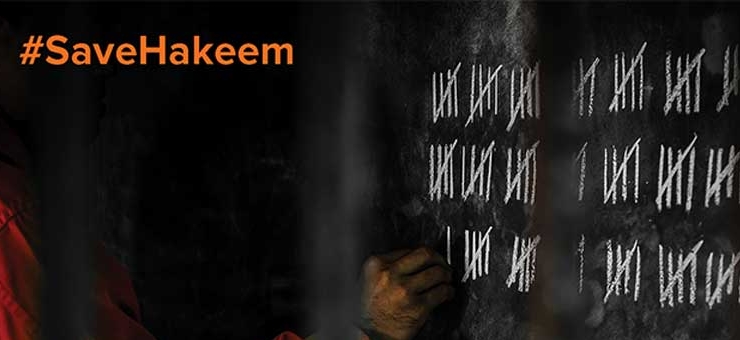News
#SaveHakeem: Bahrain must cease and desist extradition

#SaveHakeem: Bahrain must cease and desist extradition
The International Trade Union Confederation has reiterated the call for Hakeem al-Araibi to be safely returned to Australia, adding its voice to those of many other international organisations, including UNI Global Union and the World Players Association.
Bahrain must stop its attempts to extradite refugee footballer Hakeem al-Araibi from Thailand, and the Thai government needs to release him in line with its own laws that forbid political extraditions.
Hakeem was granted refugee status by Australia after he fled there in 2014 following his escape from Bahrain where he was subjected to torture and falsely sentenced to a ten-year prison sentence for criticising the ruling royal family. Bahrain is seeking his return to the country after he was detained when he arrived at Bangkok Airport on 27 November with his wife for their honeymoon. He had received prior assurances from Thai authorities that it was safe to travel there.
“We are calling on the Thai government to exercise its power to release Hakeem and allow him to return to Australia without any further delay. He has suffered enough already as a political refugee from Bahrain, which has systematically imprisoned and tortured people who have called for political reform. Not only was his prison sentence in Bahrain imposed without any evidence, it was verified that he could not have committed the alleged crime, as he was playing in a televised football professional match on the other side of the city just 30 minutes before the alleged vandalism of a police station. Thai law forbids extradition in political cases, and the Thai authorities need to uphold their own laws in this regard,” said ITUC General Secretary Sharan Burrow.
UNI Global Union General Secretary Christy Hoffman said, “The ITUC, UNI Global Union, UNI’s World Players Association and many other international organisations are calling for Hakeem to be returned home to Australia. Bahrain and Thailand must do the right thing by Hakeem, the world is watching.”
The World Players Association, players’ unions, human rights groups and international sports stars have been prominent in the campaign to free Hakeem, with former Australian football captain Craig Foster in the lead. Hakeem’s case has drawn widespread public attention in Australia and in Thailand, and international momentum for his release is growing, with FIFA, the International Olympic Committee and the Asian Football Confederation (AFC) all calling for him to be allowed to return to Australia. The president of the AFC, Sheik Salman Bin Ibrahim Al-Khalifa, has stepped aside from his responsibilities in this case.
Governments too are showing their concern, with Australia joined by diplomats from Belgium, Canada, Finland, France, Germany, the Netherlands, New Zealand, Norway, Sweden, the UK and the US as well as the European Union attending the court hearing on 4 February where Hakeem, wearing leg shackles, was detained for a further 60 days while his extradition trial takes place.
The Australian Council of Trade Unions has called for a parliamentary inquiry into the involvement of the country’s federal police force in the temporary and erroneous issuing of an Interpol “Red Notice” on Hakeem as he travelled to Thailand, while Interpol has yet to explain how Bahrain managed to get a Red Notice in its system in contravention of Interpol rules.
The ongoing persecution of Hakeem is believed to be linked to his 2016 criticisms of Salman, who is also a vice-president of FIFA, over the repression and torture of sportspeople including footballers in the wake of democracy protests in 2011.
“There’s no escaping the facts of this case. Hakeem is innocent of any crime, Bahrain’s own government-sponsored inquiry in 2011 found ample evidence of torture and other repression during the protests there, and Thailand’s laws mandate that he should be returned to Australia. Failure to do so would expose Thailand to serious negative consequences, both in international relations and specifically in the world of sport,” said Burrow.
Bahrain’s rulers have maintained an iron grip on the country since the 2011 protests, with hundreds of Bahrainis having their citizenship withdrawn, and new cases of unjust imprisonment and torture.
“It is difficult to see how Bahrain can be an acceptable host for any sports event, or indeed how senior Bahraini government nominees hold powerful positions in the Olympics and FIFA. This is a defining moment for the commitments that world sporting bodies are making on human rights, and the time that brutal regimes like Bahrain can polish their global image through sport must come to an end,” said Burrow.

